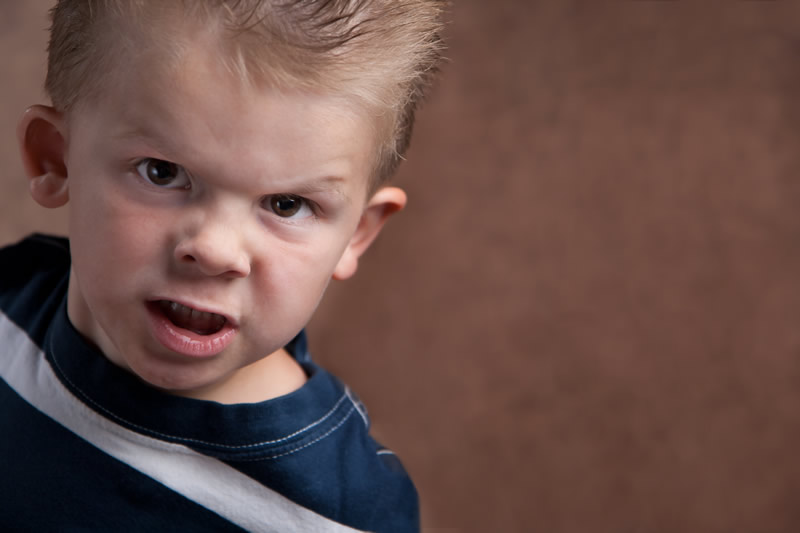Ep22 – When and how to discipline
Why am I always shouting at my child? He just seems to take no notice of either of us. We just seem to be getting angrier and angrier, and giving him more and more consequences, but nothing seems to work. Our house is turning into a battle zone. I shudder to think what the neighbours think. I wonder if there is something wrong with him, or maybe I am just a hopeless parent?
Key points
- If we discipline too much, we undermine our own authority.
- The right discipline depends on the individual child.
- Your ultimate objective is to teach self-control.
- Have structure in the rules you set.
- Remember to ask them what they think about different issues.
- Unwanted behaviour needs to have a consequence.
When do we discipline?
Given the reasons for why we discipline discussed in the last blog entry, we need to consider when and how often we do it. If we discipline too much, we undermine our own authority. We become a nag. Also, given that rewarding wanted behaviours is ultimately more effective, this should become our main tool for teaching them stuff.
You can divide up behaviours and our response to them in the following way:
| Their behaviour | Especially bad | Bad | Good | Especially good |
| Our repsonse | consequence | No reaction | Reinforce – notice and acknowledge | Reward- with attention, approval and appropriate praise |
You will note that the heavy handed stuff, the consequence, is reserved for only especially bad behaviour. Yelling, screaming and hitting aren’t even there (more on this later). The good news here is that this makes our lives a lot easier. The majority of your child’s behaviours are going to fall in the middle two columns. If we simply have to reinforce good behaviour and ignore bad behaviour most of the time, well hey, that’s not too bad. Getting all huffed up and cranky takes a lot of effort!
Now, what behaviours are ‘especially bad / bad / good / especially good’ is a bit hard to define, and will obviously vary greatly from child to child — this is the point. What is a little bit bad for one child (eg making a big mess of their room by a three year old with a difficult temperament) may be especially bad in another (eg a six year old with normally good self control).
So, what is especially good or bad for this particular child at this particular age?
This is what you need to consider, and to have your spread of reactions right. If a child has a lot of challenging behaviours and they are getting consequences very frequently, they will start to think the world is against them all the time. They will become demoralised.
If we can limit imposing more negative types of discipline to only occasionally (say, once every few days instead of several times a day) they will have much greater impact. Really, the majority of our kids’ unwanted behaviours fall into the irritating rather than antisocial basket , and by and large should be going ‘through to the keeper’ — that is, we should ignore them. If we enter parenthood with our own childhood baggage that disagrees with this, we may find this challenging. It is, however, something that people can quickly adjust to and get in the habit of. If you can do this it will make you a far more effective guide.
How do we discipline?
So, how exactly do we approach this discipline stuff? We should keep in mind that when we are imposing discipline, stress levels are often high (both for ourselves and our child). When we are stressed, we tend to focus on what is directly in front of us, and fail to see the big picture. We have a narrow focus. We also tend to rush—we want it sorted, and we want it sorted now! This can lead to us making mistakes that we later regret.
Try to keep an eye on your ultimate objective (to teach them self-control), take a few breaths and slow down. Look laterally— broaden your focus. The key with discipline, just like painting a wall, is in the preparation. (And we can do much of the preparation before an incident even occurs, when we are not stressed).
Preparation:
The whole idea behind preparation is trying to avoid a crisis. The more clear the ‘family rules’ are, the more consistently they are applied, the more aware everyone is of behavioural expectations, then the less need for discipline, and the easier it is to implement when required . We are setting up for success.
The first thing parents need to do is talk to each other. We need to be aware of our partner’s thoughts about discipline. Parents don’t have to agree about everything, but it helps to be on same page on most things, especially important and emotionally charged matters.
 Assuming you have reached agreement on a disciplinary issue, you then need to take it to the person who will be on the receiving end — your child. If they are old enough, they should be allowed some input at this point. Being involved in negotiations and agreements prior to events increases your child’s sense of participation and ownership. (‘Yeah, I know I agreed that if I didn’t do all my homework by dinner time I couldn’t watch TV that night.’). In these negotiations, always reflect on whether you are being reasonable – does your child have a good chance they are going to be able to meet your expectations?
Assuming you have reached agreement on a disciplinary issue, you then need to take it to the person who will be on the receiving end — your child. If they are old enough, they should be allowed some input at this point. Being involved in negotiations and agreements prior to events increases your child’s sense of participation and ownership. (‘Yeah, I know I agreed that if I didn’t do all my homework by dinner time I couldn’t watch TV that night.’). In these negotiations, always reflect on whether you are being reasonable – does your child have a good chance they are going to be able to meet your expectations?
So, what are the rules of the family?
The overall structure is more important than specific rules. It is like having a policy and procedure manual in a workplace; you don’t have to know everything in it (does anybody ever?).
Structure leads to fewer decisions needing to be made on the run, hence less conflict. It makes things predictable. If there’s too much structure, however, (take note, you anal types out there) it can squash innovation and potentially your child’s sense of independence. If a small child is expected to keep all their toys arranged immaculately, and is never allowed to have the blocks and dolls out to play at the same time, they may be less inclined to explore and play in imaginative ways.
While I said that children (if mature enough) can be involved in setting rules, obviously families are not democracies, with everyone having an equal voice. Families require parents to guide and lead. They need to be the ones in charge, in the same way a teacher needs to control a classroom. It’s entirely appropriate for the parents (and teachers) to have the final say in matters affecting children in their care. That said, kids should be allowed some voice.
Remember to ask them what they think about different issues. This helps them develop skills like self-awareness and reflection. We’re teaching them how to cope when things don’t go their way.
In summary, preparation is about having a set of rules in place that everyone’s aware of, and also understands what happens when they are broken. According to Stanley Turecke and Sarah Wernick in Normal Children Have Problems Too:
A child should not be punished unless the expectation, rule and consequence are clearly articulated ahead of time.
Our reaction:
I made the point earlier that most of the time our reaction to unwanted behaviour should be no reaction. Children crave our attention (even if it means getting into trouble), so by not providing it we hold all the aces. The art of ignoring is a practiced but underrated skill.
However, there are clearly times where unwanted behaviour needs to have a consequence. These will be discussed in the next post.





